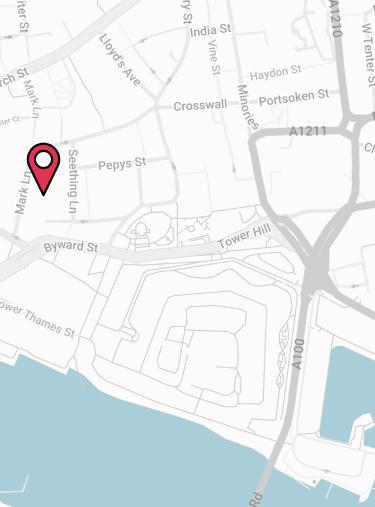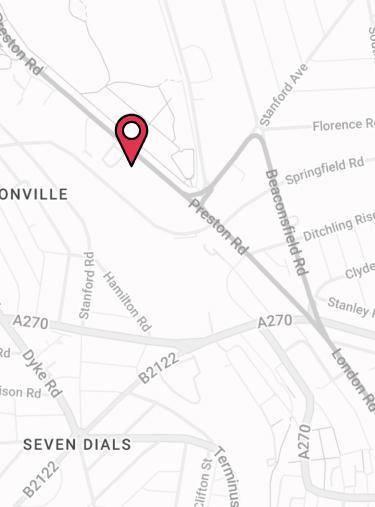Life has an unpredictable nature and you never know when you might require some extended time off work. Whether this is because of an injury you’ve sustained or an illness, absence could cause a loss of income.
As an adult with bills and responsibilities, facing financial hardship is often a significant concern. This is why many people turn to Income Protection policies to help protect their income should the worst happen.
Here’s what you need to know if you’re considering getting your own policy.
5 Minute Video Guide To Income Protection In The UK
Short on time to dive into our guide but still want specialist insights on Income Protection? Our very own Ben Brooks gives us the rundown, and what to consider before buying a policy. Just hit play! 👇
What Is Income Protection?
Income Protection Insurance is designed to cover a proportion of your monthly salary should you suffer an accident or illness that prevents you from working.
These policies:
- Cover up to 70% of your gross annual salary
- Enable you to cover your core outgoings (mortgage or rent, utility bills and grocery shopping)
- Pay out after as little as 1 week of illness or injury
- Protect your income right up until your expected retirement age
- Help to maintain your regular lifestyle while recovering.
SPECIALIST TIP! 🤓
According to consumer group Which?, Income Protection is the one insurance product that every UK working adult should consider.
Why Is Income Protection Insurance Important?
Income Protection Insurance is important for a variety of reasons. Many people don’t receive comprehensive financial protection from their employer in the event they take sickness leave. And benefits provided by the government are likely to only make a small dent in your outgoings if you can’t work for any medical reason.
As we’ve mentioned, life is unpredictable and you can become unwell or suffer an accident at any time. This can be challenging from a financial standpoint. What would happen if the breadwinner in your household couldn’t earn a living?
How Does Income Protection Insurance Work?
If you fall ill or suffer an accident that leaves you unable to work, Income Protection pays out a monthly benefit to cover part of your income. A policy typically covers most illnesses and injuries, including musculoskeletal issues, cancer, mental health disorders, and more.
When setting up a policy, you’ll choose:
- How much cover you need
- The term of your policy
- The claim length of your policy (short-term or long-term payouts)
- A deferred period.
You will pay a premium for cover, either monthly or annually. If you need time off due to an accident or sickness, you can make a claim. This is only if your policy covers the medical issue.
In the event of a successful claim, you’ll have to wait out the deferred period. Once this has passed, your monthly benefit begins. You receive this as tax-free payments. These payments continue until one of the following occurs:
- You’re well enough to return to work
- The policy life term ends
- You retire.
SPECIALIST TIP 🤓
If you think you may need to make a claim, let your insurer know as soon as you think you’ll require time off work. This helps ensure you get your benefit sum when you need it.
What Does Income Protection Insurance Cover?
Your Income Protection policy is designed to pay out if you’re unable to work because of:
- Accidents or bodily injuries
- Periods of ill health.
These policies typically have few exclusions, making it the most comprehensive form of incapacity insurance on the market.
When setting up a policy, make sure it covers you in your own occupation. Here, you’re eligible to make a claim as long as you’re incapable of carrying out your specific job duties.
Including Unemployment Insurance
To make your policy more comprehensive, adding Unemployment Insurance to the plan can help to further protect your income. This can pay out if you’re made redundant, for example.
Some clients prefer to buy Income Protection and Unemployment Insurance separately. When combined, it’s typically a short-term policy.
We recommend buying Long-Term Income Protection as a standalone product. Having this type of protection provides extra coverage, normally up until your retirement age.
Support Services And Additional Benefits
Most personal protection policies come with a variety of extra benefits alongside the core cover. Such extras are there to further support your health and wellbeing.
Your policy may include:
- 24/7 virtual GP services
- Physiotherapy sessions, either online or face to face
- Counselling sessions, either online or face to face
- Gym membership discounts
- Second medical opinion services.
You can utilise these benefits outside of a claim, meaning you can benefit from the policy as soon as it’s active. Many of these can be used by your immediate family (spouse / dependent children) too.
What Doesn’t Income Protection Cover?
Income Protection policies have limitations and restrictions. These apply to all policyholders regardless of factors such as age, health history and smoker status.
Policies typically exclude claims resulting from:
- Self-inflicted injuries
- Substance abuse. E.g. drug or alcohol misuse
- Travel to a country with active internal conflict or political instability, in which the Foreign Office has advised against.
What About Pre-Existing Medical Conditions?
Insurers often require you to share your medical notes when applying for a policy. If you’ve had a health condition in the past five years, the insurer may exclude the medical issue from your policy.
Depending on the condition and severity disclosed, the insurer will either:
- Provide cover for it without a change in premium
- Provide cover with an increase in premium
- Exclude the condition completely.
If you have a pre-existing condition, it’s best to speak with an independent financial adviser (like our specialists at Drewberry). We have direct access to the insurer’s underwriters, placing us in a great position to negotiate the best terms for your policy.
If you need help, please don’t hesitate to pop us a call on 02084327333 or email help@drewberry.co.uk.
Do I Need Income Protection Insurance?
Whether you need Income Protection Insurance is personal to you and depends on many factors. You might consider it if your company sick pay isn’t sufficient or you don’t have any savings to fall back on, for example.
When considering this insurance policy, it’s important to think about what would happen if you couldn’t work for a length of time. How would you cope financially?
Assessing Your Incapacity Risk
Your chances of falling ill or suffering an accident are much higher than most anticipate.
These statistics show just how many people living in the UK experience some form of health condition or illness in their lifetime.
A Lack Of Savings
If you were out of work for a long period, how would your finances fair? This is something to think about when considering Income Protection Insurance. In fact 26% of working professionals told us they would survive less than a month on their savings.
Considering the average household spends £2,873 a month on household bills, a loss of income is likely to cause financial hardship. A comprehensive policy provides a vital financial safety net should you be unable to work.
State Benefits
Many turn to government support during times of financial instability. However, Employment and Support Allowance offers £92.05 a week if you’re over 25. This sum is unlikely to cover your essential outgoings.
While there are other state benefits available, such as Statutory Sick Pay (which provides £118.75 a week), these depend on your circumstances and your health condition. When you consider how much an average household spends on bills, such benefits are not enough.
When Should I Consider Buying Income Protection Insurance?
If you’re thinking about protecting your income, it’s best to do it sooner rather than later. Here are some circumstances when you should consider a policy.
When You’re Young and Healthy
A lot of people wait until they realise their health is at risk before getting insurance. But at this point, you’re likely to face high Income Protection payments. You may also find your health condition is excluded from your coverage.
To avoid such pitfalls, the best time to take out a policy is as early as possible. The healthier you are when you apply, the more comprehensive and affordable your policy may be. If you choose guaranteed premiums, you’ll then benefit from paying the same low price throughout the policy’s lifetime.
During Significant Life Events And Changes
There are times where we take on more responsibility and realise the importance of protecting your income. This includes:
Buying a home
Your home is often the most valuable asset you have, with many people committing their working lives to a mortgage. To ensure you can continue paying your mortgage if you can’t work, a policy can help cover these payments.
Changing jobs or receiving a promotion
Getting a new job is a great time to take out personal insurance – especially if your employer doesn’t offer any financial benefits, or only provides statutory sick pay.
Self-employment
If you’re self-employed, you probably don’t receive the same benefits a regular employee would receive. Self-Employed Income Protection is essential here.
Birth of a child
An extra dependent joining the family means an increase in living expenses, which is another reason to ensure your income is protected.
Income Protection For The Self Employed And Company Directors
Standard Income Protection is suitable for most people. However, if you’re a company director or you’re self-employed, specialist cover is necessary. It’s likely you don’t have the safety net of an employer.
If you’re self-employed, it’s essential your level of cover aligns with what you declare to HMRC. This helps make sure you don’t over insure yourself and pay for cover you can’t claim on.
SPECIALIST TIP 🤓
Directors often pay themselves a small salary and take the rest in dividends. In this case, it’s important to speak with a specialist financial adviser to ensure you get an Income Protection policy that protects your dividends.
Specialist Income Protection Insurance Policies
Some professions, such as NHS staff, operate on a tiered sick pay system. The length of time you’re employed determines the amount of sick pay you’re entitled to. For example, during your third year of service, your entitlement is four months’ full pay and four months’ half pay. This might not be enough to cover essential outgoings.
There are a range of specialist policies, including policies for doctors, dentists, and even pilots.
If you run your own business and have employees working for you, Group Income Protection is a great benefit to offer. This can align with your sick pay policies and provide essential financial protection.
Income Protection Or Critical Illness Insurance?
As well as Income Protection, some people also consider Critical Illness Cover. But which one is best? The policies sound similar, although they work differently.
Income Protection pays out a regular monthly income if you’re unable to work for any medical reason. The Best Income Protection will pay out until your retirement age in the event you can’t work again.
Whereas, Critical Illness Insurance provides a single tax-free lump sum if you’re out of work because of a critical condition listed on the policy. Claims are commonly made for cancer, heart attack, and stroke.
At Drewberry, we recommend you buy Income Protection. This is because it can be difficult to determine how long you could be out of work with a certain illness. And as the payment through Critical Illness Insurance is a single lump-sum, it doesn’t provide ongoing payments to help you cover your household bills.
What About Payment Protection Insurance?
Payment Protection Insurance (PPI) and Income Protection are separate protection products designed for different purposes. PPI allows you to keep up with loan repayments if you’re unable to work due to accident or sickness, and potentially, unemployment. Mortgage PPI does the same for a mortgage.
As these policies are typically tied to a loan repayment structure, you can only cover that amount. While your mortgage or loan will be covered, many other living expenses are not.
This is why we recommend Income Protection over PPI, as you insure a portion of your salary against the risk of accident or sickness. We also tend to steer away from PPI because it often comes with more exclusions. For example, no coverage for back pain or mental health conditions. It can also be difficult to make a successful claim.
Factors To Consider When Buying Income Protection Insurance
There are many factors to think about when taking out Income Protection. Some are policy-centric, while others are more personal.
All the following factors can affect the cost of Income Protection:
- Deferred period
The deferred period is the length of time you’d be willing to wait for your benefit payments to begin after taking time off. Deferred periods begin at 1 day and go all the way up to 104 weeks (2 years). If you have enough savings for a month, for instance, a deferred period of 4 weeks is suitable
- Policy cease age
This refers to your age at the end of the policy. Typically, you align this with your expected retirement age, which may be 60 or 65. The older your cease age, the more the policy costs. But you’ll be protected for longer
- Level of cover
Also called “sum assured”, you can cover between 50% and 70% of your gross earnings with Income Protection Insurance. The higher this percentage, the higher the premiums. The amount of cover you need depends on your unique circumstances.
You’ll also need to think about:
- Short-term or long-term cover
Short-term cover pays out for a maximum of 1, 2 or 5 years per claim. While long-term can pay out until your retirement age. This ensures your income is protected for as long as possible
- Indexation
By index-linking your policy, your benefit amount aligns with any changes in inflation rates. So, the value of your policy doesn’t depreciate over time. Your premiums will then reflect any changes to your increased benefit sum.
Premium Type
There are three premium types to choose from when getting Income Protection Insurance.
- Reviewable premiums
Reviewable premiums can be reviewed and revised by the insurer as they see fit. Premiums may rise to cover a spike in claims or to align with changing economic factors. This type tends to start out cheaper, but may end up more expensive over the policy’s lifetime
- Age-banded premiums
The same goes for age-banded premiums. These work out cheaper initially but rise each year. Age-banded premiums can only increase by a preset amount stated in the policy. Rises are linked to your age and the higher risk of accident or sickness as you get older
- Guaranteed premiums
We recommend guaranteed premiums, as these remain fixed over the life of the policy. It may seem expensive at first, but these premiums work out more affordable over time, as they can’t be changed.
Own Occupation Cover
It’s important to get a policy which covers you in your own occupation. While there are other definitions of incapacity (suited occupation and any occupation), this type of cover enables you to claim as long as your health prevents you from doing your specific job.
Own occupation is the easiest definition to claim on. Insurers typically use these definitions to determine how capable you are of working and your likelihood of a successful claim.
How Do You Make An Income Protection Claim?
Insurers paying out claims is the most important aspect of the protection industry. In recent years, developments have made making a claim easier and faster.
Here’s how making a claim works:
- You become unwell or suffer an accident leading to time off work
- As soon as you think you’ll be out of work for longer than your deferred period, contact your insurance provider
- Provide the insurer with a completed claims form and evidence of your condition
- Wait for confirmation of your claim from the insurer
- The insurer will begin to pay out your benefit once you’ve reached the end of the deferred period
- Then your payments continue until you return to work, reach the policy cease age, or retire (whichever is most applicable to your policy terms).
Should you need to make a claim, our specialist advisers are here to help. We’ll ensure your claims form is completed and your claim is dealt with smoothly and quickly.
Neil’s Cancer Claim With British Friendly
Neil is a client of Drewberry who took out an Income Protection policy with British Friendly. He’d had his policy for just 4 years before becoming ill.
After experiencing stomach pains, Neil went to his GP, who referred him for further tests. These tests discovered that he unfortunately had bowel cancer, and it was already at stage 2.
Neil needed surgery to remove the cancer, but developed postoperative sepsis and had to spend several weeks in hospital recovering, completely unable to work.
British Friendly began paying him a proportion of his earnings after his deferral period, allowing him to keep up with all the important bills, such as his mortgage, while he was unwell. 🤕 Read More About Neil’s Claim.
https://www.youtube.com/watch?v=9hzReIUV2uw&embeds_referring_euri=https%3A%2F%2Fwww.drewberryinsurance.co.uk%2F&source_ve_path=OTY3MTQ&feature=emb_imp_woytIncome Protection Provider Claims Payout Rates
The vast majority of Income Protection providers now publish their claims statistics, which is a real step forward in building trust.
Each year, the Association of British Insurers (ABI) publishes average payout rate statistics from all insurers. Below, you’ll find the most recent payout rates from all the UK Income Protection insurers.
IMPORTANT ❗️
Claims payout statistics shouldn’t be used to make an exact comparison of insurers, but rather to get a general understanding of payout rates across insurers as a whole.
How Much Does Income Protection Cost?
The cost of Income Protection depends on a number of personal and policy-centric factors. To give you a rough idea of premium costs, we’ve pulled together some quotes below. These are based on:
- Individual is a healthy 35-year-old
- Non-smoker
- Works in an office-based job
- Wants a 4 week deferred period
- Needs £2,000 worth of cover
- Long-term policy with a cease age of 65.
Provider
Each Income Protection provider charges different premiums, even if your cover seems pretty much the same. This is because each provider has its own appetite for risk and charges based on this.
The Deferred Period
The longer your deferred period, the cheaper your premiums. Based on the above policy options, here are example monthly costs from British Friendly for different deferred periods.
Short Term Vs Long Term Cover
The duration of the policy payment period impacts the cost. A short-term plan is cheaper than a long-term one. However, it’s important to remember short-term policies don’t provide the same comprehensive coverage as long-term policies. Here are example costs from The Exeter for different cover terms:
Your Age
As you get older, you’re more likely to suffer an injury or become unwell. As a result, older applicants face higher premiums. The earlier you take out a policy, the lower the cost. Here are example costs from Vitality for different ages:
Smoker Status
If you smoke, your health is more at risk than a non-smoker. Most insurers, although not all of them, charge smokers higher premiums. Here are example monthly costs from LV=:
SPECIALIST TIP 🤓
If you use vapes or nicotine patches, you’re still classed as a smoker by most insurers. If you consume any nicotine products, it’s best to speak to a specialist adviser before buying an Income Protection policy. We’ll find providers that offer the most competitive premiums for your smoker status.
Your Health
Depending on your health status and the insurer you choose, you may pay more for cover if you have a pre-existing medical condition or an adverse health history.
Your Occupation
What you do for work has an impact. Some jobs are riskier than others, and insurers increase costs to reflect the additional risk. Manual workers, for example, are more likely to have an accident on the job than someone with an office job.
Does Income Protection cover redundancy?
No, traditional Income Protection doesn’t cover redundancy or unemployment. To cover these situations, you require Accident, Sickness and Unemployment (ASU) or Income Protection with separate Unemployment Insurance cover bolted on.
We tend to recommend the latter, as ASU policies only pay out short-term if you can’t work due to accident or sickness.
Is it worth getting Income Protection Insurance?
Taking out Income Protection is a personal decision. It’s important to consider what would happen to your family finances if you couldn’t work and earn a living. While we don’t like to think about worst-case scenarios, you never know when an accident or illness may occur.
Income Protection is a worthwhile policy. It provides you and your immediate family with peace of mind and reassurance that should the worst happen, your essential outgoings are covered.
How soon can I claim on Income Protection Insurance?
This depends on the length of your deferred period. You choose this when you set up your policy. You can claim as soon as your policy is active, however, you won’t receive any benefit payments until the deferred period has passed.
Insurers commonly offer deferred periods of 4, 8, 13, 26, and 52 weeks. You can have a 1 day deferred period. So, if you choose an 8-week period, you will have to wait 8 weeks to start receiving any payment from your policy after a claim.
Do I pay tax on Income Protection?
When taking out Income Protection for yourself, there isn’t any extra tax to worry about. You pay premiums from your personal bank account, in which your income has already been taxed. So, the payout is tax free.
Tax implications differ for Directors Income Protection. Here, premiums are paid via the business and are classed as a business expense against corporation tax. As no tax is paid on the premiums, you will pay tax on the payout.
Can you claim more than once?
Yes, you can. You could be off work for a year due to a musculoskeletal issue, such as back pain, and return to work after you’ve recovered. Then, in a few years’ time, you might develop a new condition and need more time off. You’d be able to make a second claim on your policy.
With long-term cover, you can claim multiple times for the same condition/illness (recurring illnesses).
Compare Income Protection Insurance Quotes And Specialist Advice
With so many factors and options to consider when buying Income Protection, we know it can quickly become overwhelming. At Drewberry, our team of specialists are here to help ensure you buy the right policy for your needs. We’ll search the UK market on your behalf to find the most competitive deal.
If you’d like some help with this, get in touch by calling 02084327333 or email help@drewberry.co.uk.
Why Speak to Us?
When it comes to protecting yourself and your finances, you deserve first-class service. Here’s why you should talk to us:
- There’s no fee for our service
- We’re an award-winning independent insurance broker, working with the leading UK insurers
- You’ll speak to a dedicated specialist from start to finish
- 4055 and growing independent client reviews rating us at 4.92 / 5
- Claims support when you need it most
- We’re authorised and regulated by the Financial Conduct Authority. Find us on the financial services register.














